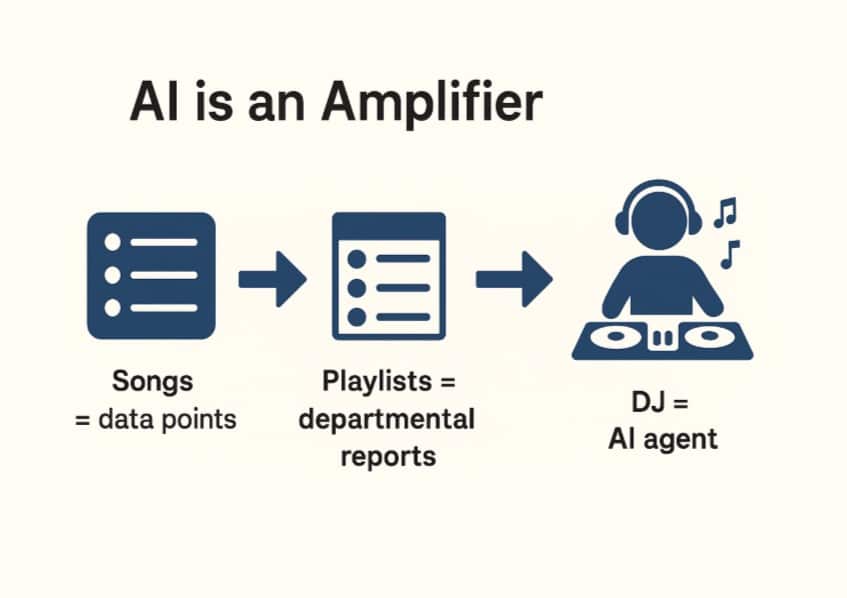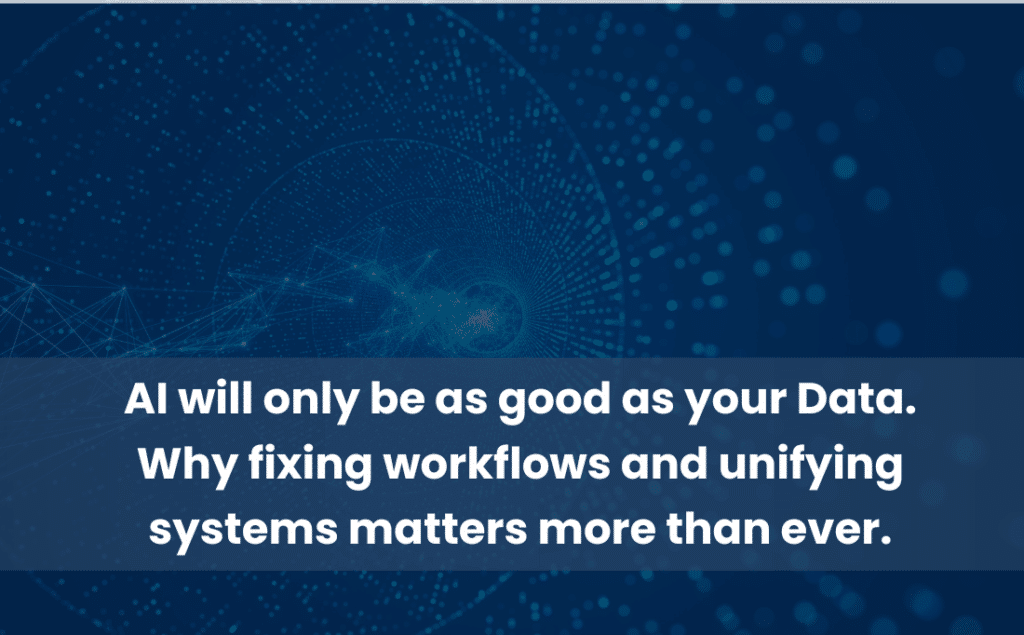Artificial Intelligence is not magic, it is an amplifier. It takes whatever data you give it and magnifies it. If your data is rich, accurate and meaningful, AI will make it more powerful. If your data is fragmented, inconsistent or incomplete, AI will make that louder instead.
This is the core message of a keynote speech I deliver on AI and the Future of Data, where I explore how organisations can truly prepare for an AI-driven future.
The reality is simple but often overlooked: your AI strategy is only as strong as your data strategy.
Here are the three principles:
1. AI is an Amplifier – of both the good and the bad
To explain this, I asked the audience to picture their Spotify account.
- Your songs = individual data points in your business
- Your playlists = departmental reports
- The DJ = an AI agent, mixing everything to create a bigger-picture understanding

If your songs are mislabelled, missing, duplicated or of poor quality, your playlists will be messy and the DJ’s final mix will be even worse.
AI does exactly the same thing.
If you feed an AI agent inconsistent, siloed or low-quality data from across your business, it will produce outputs that are confused, misleading or simply wrong. When the underlying data is trusted, clean and complete, AI becomes an extraordinary accelerator.
2. Fix the broken workflows and data gaps first
Before you start dreaming about AI copilots, autonomous agents or predictive analytics, you must address the basics:
- Where is your data getting stuck?
- Which workflows create inconsistencies, duplication or manual workarounds?
- Where are the gaps that prevent teams from seeing a full picture?
AI does not compensate for these problems, it exaggerates them.
This is why forward-thinking organisations are investing not only in AI, but in data governance, data quality, workflow redesign and system integration. When you fix the foundations, AI becomes safer, faster and dramatically more effective.
3. Knit Your Systems Together with a Data Warehouse
The third point – and arguably the most important – is that AI performs best when it can see your entire organisation clearly.
That means the data across your CRM, ERP, finance systems, marketing tools, operations software and custom databases must be collected in a single, structured, unified place.
That place is a data warehouse.
A warehouse acts as the backbone of AI readiness:
- It standardises your data
- It removes silos
- It provides clean, consolidated views
- It enables analytics and governance
- And most importantly… it gives AI a single source of truth
At Avrion, this isn’t new to us. We’ve spent over a decade helping clients implement middleware, data warehouses and portals to improve reporting and data management. Long before “AI-ready data” became a buzzword, we were already helping organisations break down data silos and lift the quality of their information.
Now, with AI accelerating faster than ever, those foundations matter even more.
The future of AI belongs to businesses with the best data
AI will never replace the need for strong data discipline; it will demand it.
Businesses that thrive in the next decade will be those that:
- Treat data as a strategic asset
- Fix workflows that generate poor data
- Unite their systems
- Build a strong and reliable data pipeline into their AI tools
In other words: AI isn’t the destination. Data is.
If you want AI to transform your organisation, start by transforming your data.



